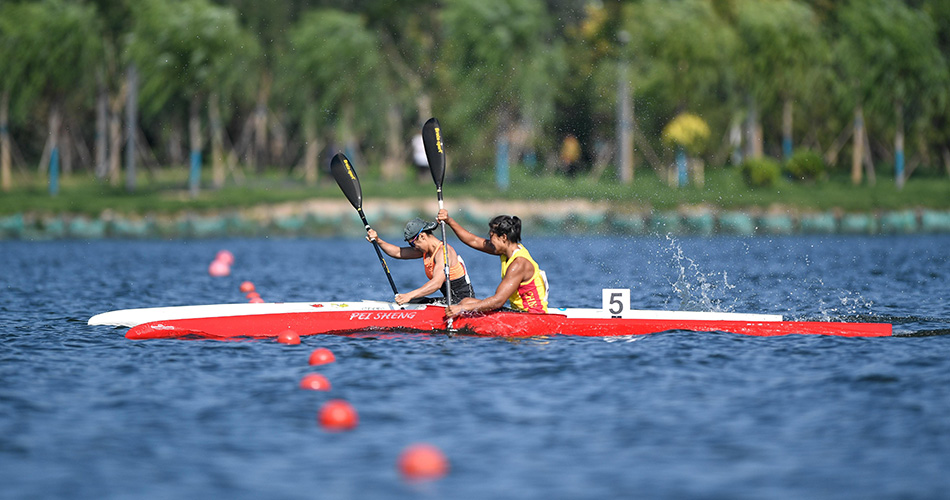
SUP battle | surfboard or kayak?
Is SUP kayaking or surfing?
Now, the debate has become more than just a civil conversation. In the Olympic world, it has become a political issue, even to the court of arbitration.
With SUP booming globally, growing in oceans, lakes, rivers and streams, and gaining popularity in tournaments around the world, the sport is being highly watched by the Olympic Games.
That said, if the IOC were to consider absorbing this emerging sport, who would be the governing body of SUP would be the first question.
So far, two organisations, including the International Surfing Association (ISA) and the International Canoeing Federation (ICF), are fighting to standardize the rules governing paddling.
Both sides played big games and both sides felt they were the right managers for the sport.
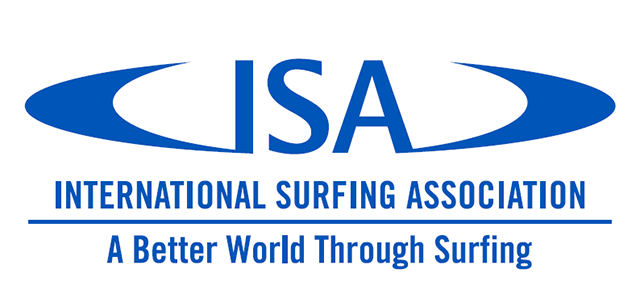
Despite the apparent lack of involvement of the International Federation of Rowing Associations (ICF) in the sport, there has been a gentle behind-the-scenes struggle between surfing and kayaking for several years.
But when ISA pushed SUP to compete in next year's youth Olympics in Buenos Aires, the issue suddenly turned into an all-out tug of war that spread to the public arena.

SUP was removed from the Youth Games after the ICF raised doubts about ISA's management with the IOC over its initiative.
At the same time, the ICF is urging its member countries to assert control of the sport within their own countries in order to make the case for ICF to have control over SUP globally.
Why are ISA and ICF working so hard?
Although surfing is already very active, SUP rowing is arguably the fastest growing water sport in the world, and in many countries it has become far more popular than canoeing/kayaking and surfing.
If sport is a business, THEN SUP is a valuable young unicorn.
SUP's past life:
According to Wikipedia, SUP originated in Africa, where soldiers attacked enemies from canoes.
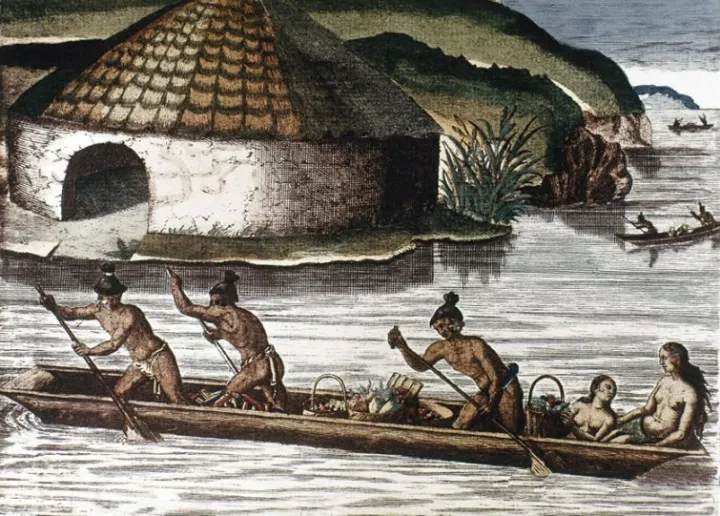
In fact, ancient Peruvian fishermen used such boats to go out fishing and come back surfing on their feet.
There are historical records.
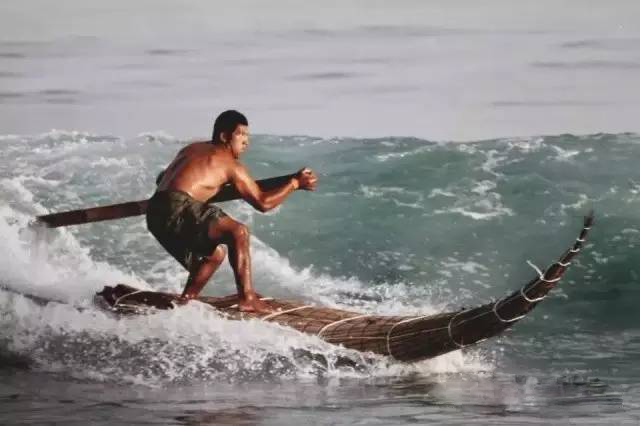
The closest SUP comes in 1939 when Duke Kahanamoku, a surf instructor from Waikiki, Australia, stood on a surfboard with a Kayak paddle in his hand
In Croatia in 1939, there was no telling what this man was doing. He stood on a long board shaped like a SUP, holding a paddle, but the villagers around him were clearly fascinated by him.
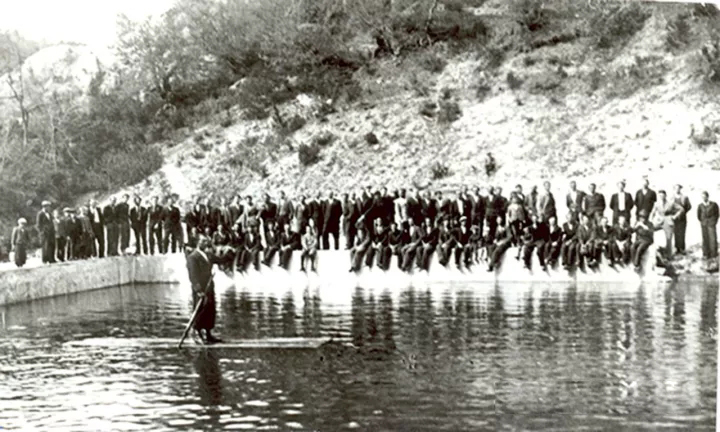
Newquay Bay, England, 1953.
Charlie Force, a carpenter, built a hollow wooden surfboard with enough buoyancy to carry people and then used a kayak paddle to help with the paddle.
From the 1940s to the 1960s, a team of Hawaiian surf instructors called The Beach Boys of Waikkiki took pictures of tourists learning to surf on stretched surfboards, hence the term 'Beach Boy Surfing', another name for SUP.
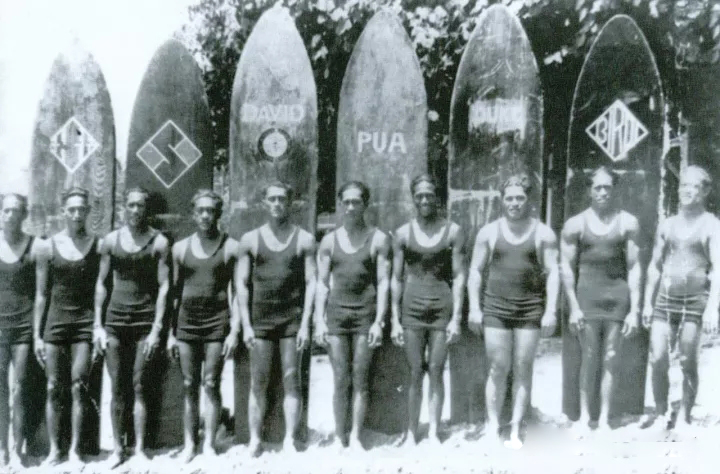
In the 1990s, Hawaiian surfing instructors began using SUP as a substitute for a surfboard when the waves were small.
SUP is becoming all the rage.
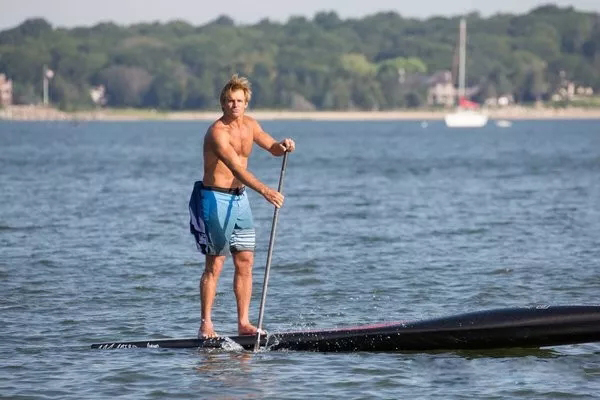
In 2003, the Buffalo Big Board Contest added a new category called Beach Boy Surfing
(SUPsurfing), and the response was so overwhelming that a large number of surfers got involved.
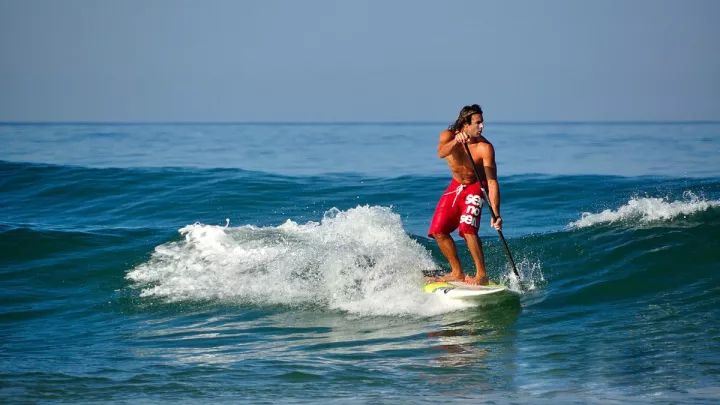
SUP competitions became more and more common. In 2013, Kai Lenny won the first SUP World Championship.
In the history of SUP, SUP has a deeper connection with surfing.
Still, history isn't enough to sever SUP's connection to canoeing, since standing canoeing has always existed.
Is SUP more like surfing or kayaking?
Athletes stand on boards and sometimes ride waves, which is surfing.
Athletes propel themselves on the water with paddles. This is kayaking.
It can be raced in calm waters, like a standard canoeing competition.
It can also be played in the surf, which is another surfing competition.
Simon Toulson, general secretary of the Kayaking Federation, said: "Especially in calm water, propulsion with an oar is basically kayaking.
It doesn't matter to stand up or sit down."
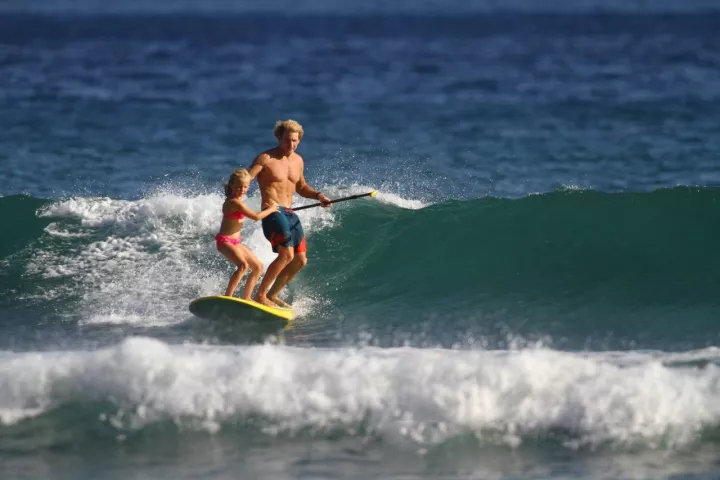
If people can ride waves with long paddle boards, why shouldn't it be called surfing?
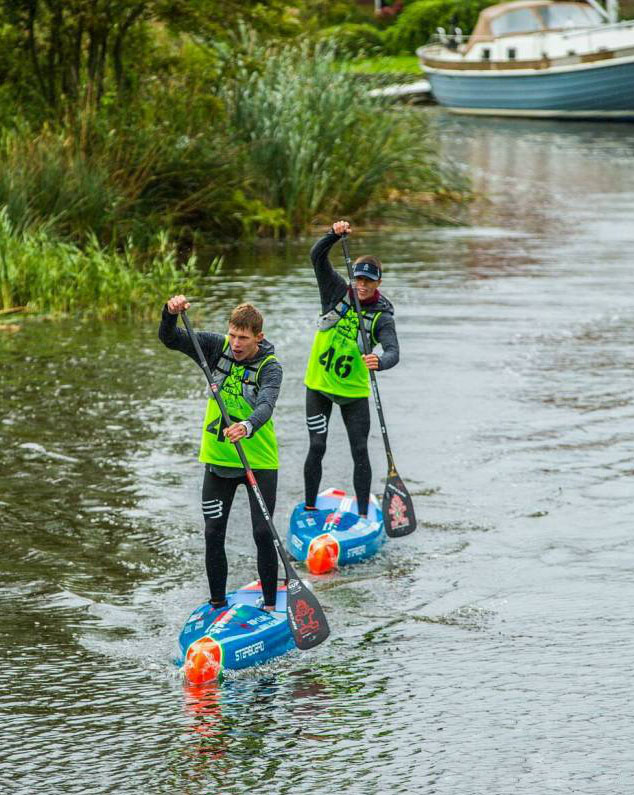
SUP's still water race is very much, the athletes use the paddle to drive themselves forward, this is not kayak?
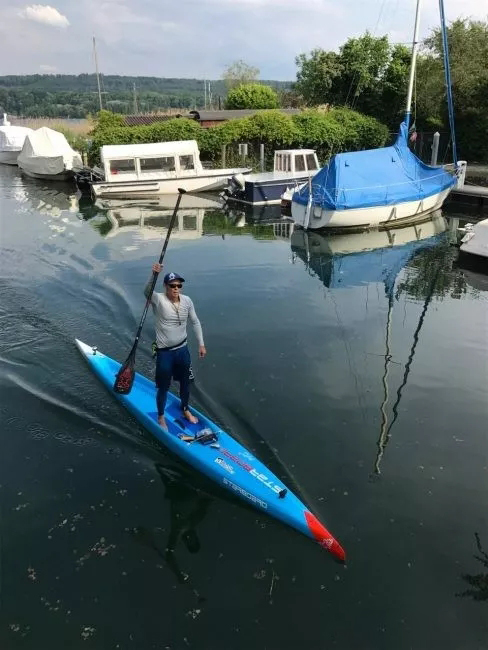
Especially this one cabin sunken paddle board, this is too like a kayak!
From the shape of the board, most of the SUP paddle board is still like a surfboard, only wider and thicker, more buoyant than a surfboard, but otherwise no difference.
The reason for the kayak-like paddleboard is that SUP racing produces a thirst for speed that forces manufacturers to seek more efficient gliding hulls.
The racing SUP paddles form a separate category, narrower and more sunken, closer to the kayak.
The original SUP paddles came to be known as the all-Round.
In its submission to the IOC, ICF argued that the SUP racing board was essentially designed to be a standing kayak, not a surfboard.
But as the previous LIFE of SUP above shows, while ICF has some truth to it, there is more evidence that SUP design has something to do with surfing.
The rationale behind SUP racing board = kayak is that many SUP manufacturers have started to add specialized "bunker sinking" molds.
The boards are particularly popular in downwind RACES (see Starboard Ace), but the racing board style is only a small part of the overall SUP paddle board market.
When I analyzed data on paddleboards used in open and elite tournaments, statistics showed that less than 4 percent of SUP paddleboards "look like a kayak."
Or to put it another way, more than 96 percent of the paddleboards are like oversized surfboards.
So, ICF is actually helping ISA with this argument.
In the end, the INTERNATIONAL rowing Federation could also argue that "anything with an oar is a kayaking sport", but it would be hard to convince the world that SUP racing boards are kayaks.
The dispute is deadlocked
After a challenge from the ICF, the IOC was asked to mediate the dispute.
Both sides presented their arguments at a high-level meeting at Olympic headquarters in Lausanne, Switzerland, in January, but no decision was made.
The case is officially "pending" at the IOC, but the IOC has basically told both federations, "You figure it out!"
In public, both ISA and ICF say that they are friends and that they are willing to talk about and find solutions, but behind the scenes, there is growing frustration, particularly from the views of ISA, that this ISA political farce that is undermining their efforts to develop the movement.
The dispute went to the Court of Arbitration for Sport, putting this low-key, self-interested Sport in a high-profile and awkward position.
Casper Steinfath, better known as the ISA World Cup and Red Bull Water champion and vice-president of the ISA, says the situation in his native Denmark is depressing.
"It Was Fucking 'lads' Mags' including Nuts!!!!!"
Vikings reign red Bull Fury SUP arena
The Danish SUP group has been receiving government funding to help train athletes, organize events and develop paddle board clubs across the country.
As the controversy broke out, suddenly nothing was left because the money was frozen, and several projects stalled when the Danish Canoeing Association, under the guidance of the INTERNATIONAL Rowing Federation, opposed the Danish Surfing Association as the governing body of SUP in the country.
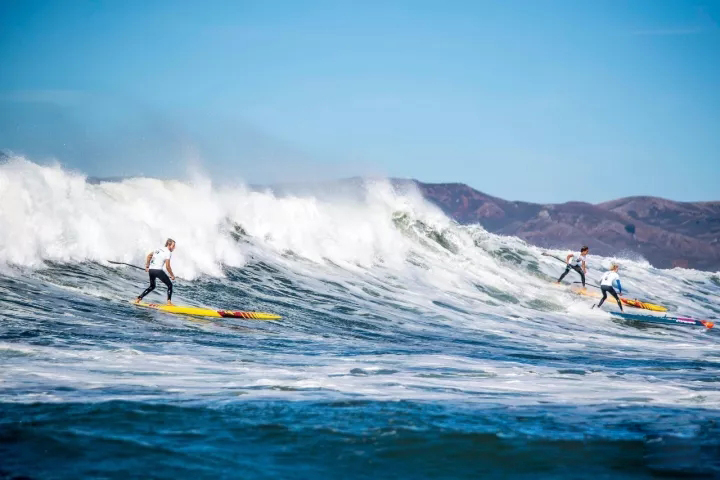
Casper Steinfath at red Bull Water Rage
Who will manage it better?
Simon Tulson, general secretary of the canoeing Federation, admitted that the association was mainly interested in rowing on still water.
"We're mostly still water," he said.
"Surfing on the beach is not our domain."
Personally, I think although SUP is diversified, the beach is still the main body of SUP. After all, the beach can cover all water conditions, including waves, downwind and turbulence, as well as still water.
From this perspective, the surfing association and the SUP community are geographically close to each other for easy management.
But I also hope that this fight with the I.F.A. will galvanize the I.F.A. to get more involved in the sport and do something long overdue.
There may be room for compromise in surfing and canoeing at home, and some stronger ICFs can develop SUP in countries with little surfing culture.
(many countries will have different water sports such as rowing and canoeing, kite surfing, SUP, conventional surfing, etc.) together, because everyone is too small to be successful - Bangkok recently for the first time ever SUP race success by Thailand rowing and canoe federation (international federation of independent), is a good example.
I also object to the idea that SUP is surfing, nothing more.
I am more convinced that all paddlers are friends, that we share the pleasure and connection of the water, whether standing or sitting or in any other position.
Finally, a word to everyone:If in doubt, paddle out!
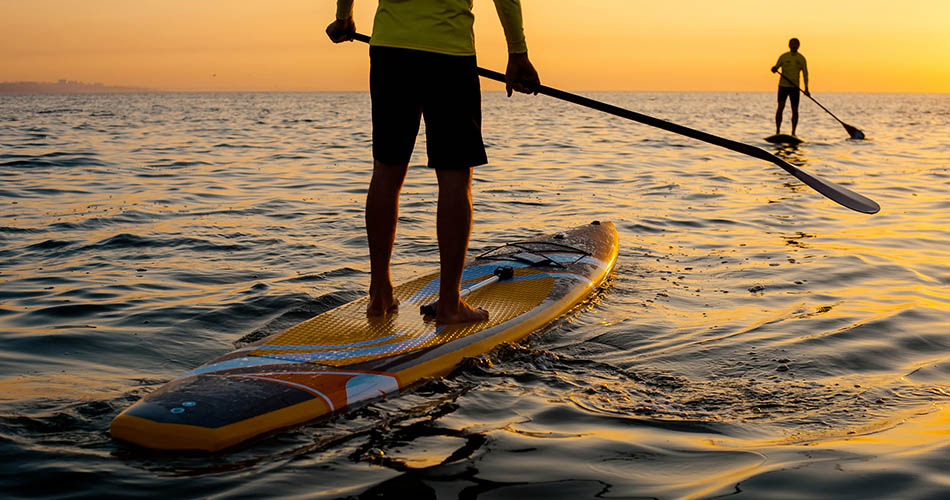


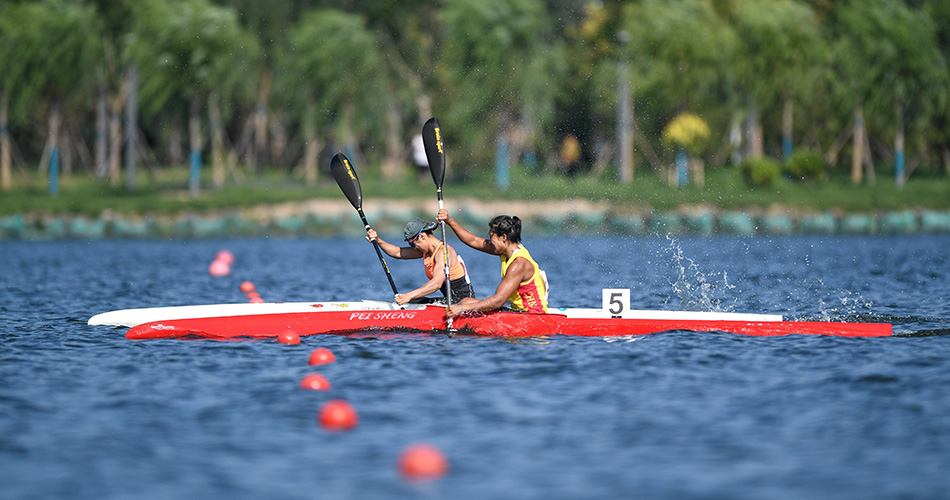
 yuanfang627
yuanfang627